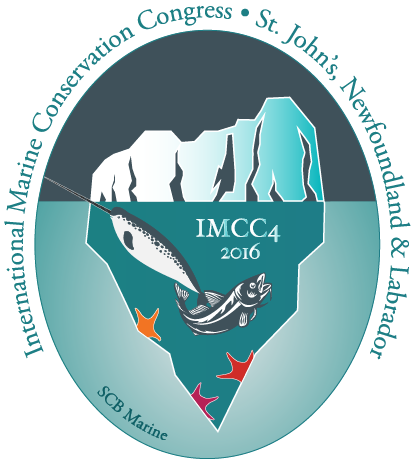TBTI 'SSF Stewardship' cluster is organizing a special session 'Conservation and stewardship in small-scale fisheries: Practices and lessons from around the world' at the 4th International Marine Conservation Congress, July 31-August 3, 2016, St. John’s, Canada.
Those interested in presenting at the session can submit their abstracts by visiting the congress website. When submitting your abstract, please make sure to indicate that the submission is part of a symposium, and provide the symposium ID (SY33-358841). A detailed description of the session can be found below. The deadline for abstract submission is March 7, 2016, 5pm (GMT).
IMCC4 will be held from 31 July - 3 August 2016 at the Delta Conference Centre, St. John's, Newfoundland & Labrador, Canada (YYT). For more information about the registration and the congress visit the congress website.
Conservation and stewardship in small-scale fisheries: Practices and lessons from around the world
Session organizers: Dr. Tara Whitty and Dr. Ratana Chuenpagdee.
Symposium ID: SY33-358841
The importance of small-scale fisheries to food security, livelihoods, and well-being of millions of people globally is highly recognized. However, their interactions, both positive and negative, with ecosystems and the resulting implications for conservation are not thoroughly understand. Research generally focuses on the negative impacts of these fisheries on ecosystems, rather than on the positive roles these fisheries could play in conservation and stewardship. Ecological impacts of small-scale fishing, while not always thoroughly researched, are considered to be high. This presumption frequently leads to decisions about conservation that not only affect the viability of small-scale fishing communities, but also impede their participation as stewards of resources and marine ecosystem. This session calls for (1) studies that illustrate impacts of small-scale fishing in ecosystems, and (2) examples of how small-scale fisheries contribute to improving resource sustainability and ocean health, as well as lessons about stewardship practices that they engage in. Ultimately, the session aims to broaden the discourse about the role of small-scale fisheries in marine conservation, based on empirical evidence, and to engage in discussion about marine resource governance that enables contribution of small-scale fisheries in conservation and stewardship as a means to address global concerns in marine ecosystems.
The information shared in this session will contribute to the TBTI 'SSF Stewardship' research cluster. Presentations will communicate information on key questions related to these communities and stewardship, which will set the stage for a post-conference working meeting on these questions and findings. Such information will be incorporated into the following products with TBTI: an e-book based on individual contribution of the SSF gear impact assessment, and distributed through TBTI and other research networks; blogs for TBTI and the Small-scale and Artisanal Fisheries Research Network featuring the presentations in this session, distributed through social media accounts; a peer-reviewed paper on the relative impacts of small-scale fishing gear on ecosystems.















